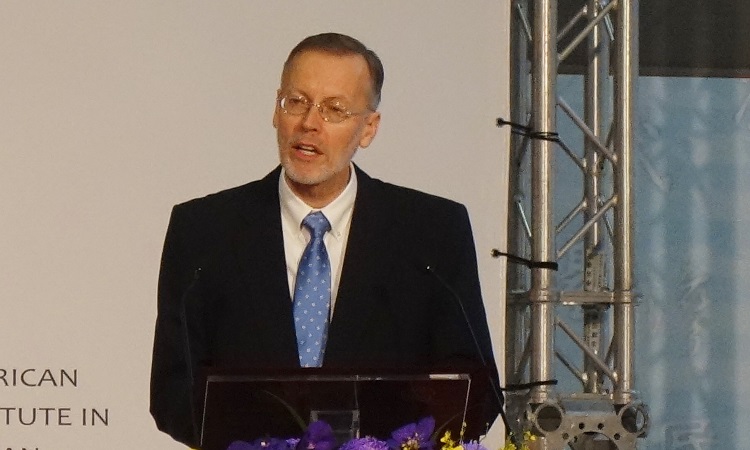Thursday, October 18, 2018
AIT Official Text #: OT-1833
Remarks by AIT Director Brent Christensen
at the Opening of GCTF Workshop on “Defending Democracy through Media Literacy”
(As Prepared for Delivery)
Speaker Su, Foreign Minister Wu, Deputy Assistant Secretary Busby, Minister Tang, TFD President Liao, distinguished guests, and friends, good morning. On behalf of the American Institute in Taiwan, it is my honor and distinct pleasure to welcome everyone to the International Workshop on Defending Democracy through Media Literacy held under the auspices of the U.S.-Taiwan Global Cooperation Training Framework.
It is hard to think of a more timely and important topic than the one that brings us here together today. The United States’ National Security Strategy describes a geopolitical competition between free and repressive visions of governance that is playing out in this region and beyond. Nowhere is this truer than on the information battlefield. The United States is grappling with the spread of disinformation, particularly as foreign actors seek to use social media to interfere in our elections, divide the American public, and undermine confidence in our democratic institutions.
Taiwan is also on the frontlines, and we all have much to learn from Taiwan about how to marshal our academic, policy, and technical resources to confront external pressure.
Ironically, those who perpetrate disinformation campaigns see democratic societies like the United States and Taiwan as soft targets. They believe that freedom of speech, freedom of the press, and confidence in journalistic professionalism are vulnerabilities. They are wrong. These freedoms and institutions provide our societies with the resilience, creativity, and confidence needed to respond to these insidious attacks.
Above all, responding to the challenge of disinformation is something no one society can do alone. We need your help. We need to hear from all of you about what policies and programs have succeeded in your countries that might work for us. We need to hear what kinds of threats you have encountered that we may need to defend against. I am so glad to see that we have participants here from a dozen countries. In addition, it is a privilege to be joined by Deputy Assistant Secretary Scott Busby today, whose participation is a reflection of the U.S. commitment to working with you all to tackle this problem and defend our democratic institutions.
Media literacy, as the experts will soon tell us, is built on a foundation of critical thinking. In the free marketplace of ideas, we want our citizens to be discerning consumers. The same critical thinking that makes people adept news consumers also helps them fulfill their civic duties. A well-informed citizenry that can effectively distinguish between credible and false reports is a citizenry that is better prepared to vote intelligently and hold their leaders accountable. It is a citizenry less prone to group think and more able to solve complex challenges. It is a citizenry less likely to answer the siren call of bigotry and more likely to value diverse voices. For these reasons, we can all see that what we are learning here today and tomorrow will contribute to a better future for our societies in many significant ways.
When I left Taiwan in 2015 as Deputy Director of AIT, the Global Cooperation and Training Framework – known as the GCTF – was still at a fledgling stage. As I return to Taiwan three years later, I am proud to see how far our partnership has come. To date, there have been 13 GCTF workshops on topics ranging from public health to energy efficiency to women’s empowerment, and today’s ceremony marks the first-ever GCTF on media issues.
The GCTF is a partnership to demonstrate and share Taiwan’s strength and expertise with the rest of the world. Over many years, Taiwan has transformed from an international aid recipient to an aid provider. Taiwan’s democratic development and its contributions to the world are deserving of the international community’s recognition and respect.
For our guests from elsewhere in the Indo-Pacific region, welcome to Taiwan, and thank you for traveling great distances to join us here today. If this is your first visit, you will soon discover that Taiwan is home to not only some of the friendliest people in the world, but also some of the most talented and creative. We encourage you to make the most of your time here, and we hope that this will be only the first of many visits to come.
As you take the lessons learned from this workshop back to your home countries, please know that the U.S. embassies and consulates where you live stand ready to support your efforts to build media literacy among your people and to ensure that democracy and good governance continues to grow and thrive in the 21st century in the Indo-Pacific region.
Thank you again for coming.
















![Video Thumbnail [Recovered]-01](../wp-content/uploads/sites/269/Video-Thumbnail-Recovered-01-1-750x450.jpg)




